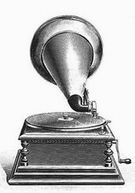| Communities > Stannington > Sound | About Contact |

Stannington - Sound
Oral History Recording of Mr. E C Bruce (20th June 1978)

Transcription of an interview with Edward Cecil Spence recorded on the 20th June 1978.
Mr E C Spence, or Cecil as he was known, was born in 1901 and lived with his widowed mother at Bog Hall Farm, Stannington. He attended Morpeth Grammar School before starting work at the Morpeth Solicitors, Brummel and Sample. In 1920 Bog Hall Farm was sold by its Landlords and the Spence family, with no security of tenure were given six months notice to quit.
The family were fortunate to secure the tenancy of Rye Hill Farm in Humshaugh, however the need for additional labour on the farm meant Cecil having to give up his career in law and return to work on the Farm.
He Married in 1925 and secured a smallholding, Middle Lipwood near Haydon Bridge. In 1926, after a visit from Adam Telfer, he became a member of the National Farmers Union (NFU).
The 1920's and 1930's were very difficult times for farming but Cecil and his wife were determined to succeed and moved to Frankham Farm in Fourstones in 1932. They produced milk from a small herd of Shorthorn cows. Cecil decided to change to Friesian cows and in 1935 bought his first animals at Paisley Market. In 1954 the opportunity arose to buy Frankham Farm were the Spence family remained; Cecil Spence died on the 28th September 1988.
This transcription is only a small clip of the full interview, during which Mr. Spence talks about life on the farms as a boy, his move to Fourstones and the farming industry in general.
[Transcription]
Well I was born in the Stannington area in 1901. My parents were farmers and had been for generations before them. And I can remember the early days of harvesting where they harvested with what we used to call a manual machine, where the driver sat on the machine and pushed the sheaths off, and they were followed by, what we called bondagers, and they made bands and tied the sheaths together, and then stooped them into tens or twelve's to dry.
Then they were lead away with a horse and cart, and stacked. We had a thrasher in the barn, but it was a small affair. We thrashed quite a bit ourselves, the horses drove it, this thrasher, in what we called a gin-gan, and I remember as a boy of about eight or ten being given the job to keep the horses moving with a little whip that I used in the gin-gan just to keep the horses moving gently around.
This tape recording comes from the large collection of oral history recordings held by the Northumberland Archive Service. Interviews were conducted by Record Office staff from the early 1970's right through until the mid 1980's. The purpose of the recordings was to capture the essence of life in the late 19th and early 20th centuries. Many different subjects were covered, including coalmining, farming, fishing, domestic life, World Wars and entertainment. Over 350 recordings have been collected comprising approximately 700 hours of recollections.